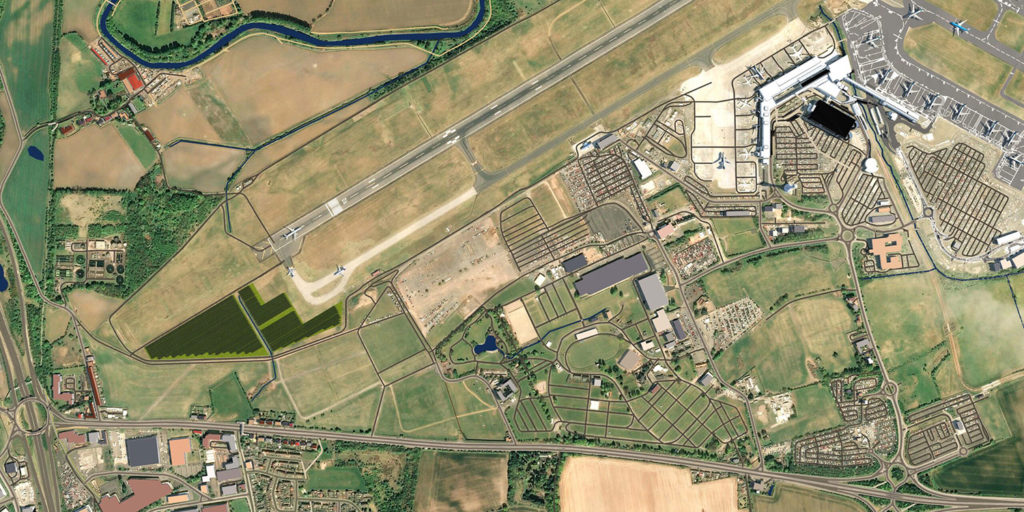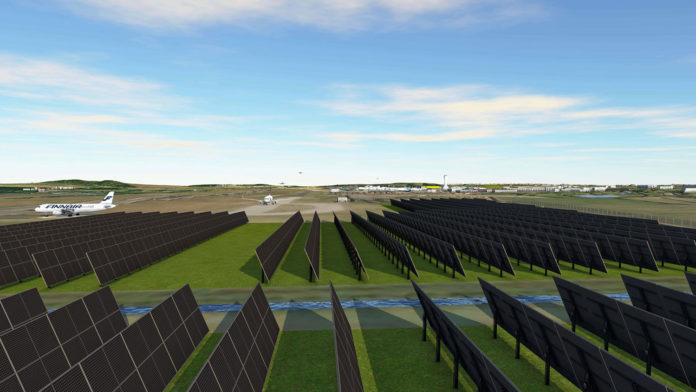The aviation industry as a whole is one of the most polluting sectors. The construction of aircraft, their use, and the operation of airports pollute the environment and the atmosphere in many ways. The overall emissions have risen as the volume of air travel has increased.
A pilot project is being launched at Edinburgh Airport to reduce air pollution from aviation. An eleven-acre solar farm is to be constructed next to one of the runways of the airport as part of its new sustainability strategy, Greater Good. The array of solar panels will be the first of its kind to be built at a Scottish airport and will provide 26% of the airport’s energy needs.
The announcement and strategy come on the same day as the airport confirms carbon neutral status for emissions under its direct control, demonstrating its commitment to a more sustainable future.
The solar farm will be located at the western end of the runway, and the construction is due to begin later this year. The facility is expected to be operational next summer and has been supported by Scottish government funding of £2m.

The airport said that its Greater Good strategy looks to reduce not only environmental impacts, such as carbon emission but also how the airport manages and enhances its social and economic impacts. It will also look to achieve carbon neutrality for direct emissions by 2024, establishing a campus-wide sustainability standard as well as a Cleaner Engine Standard.
“We are excited to be the UK’s first airport to construct a solar farm on an airfield,” said Gordon Dewar, Chief Executive of Edinburgh Airport. “Some may doubt the power of the sun in Scotland, but our solar farm will deliver around 26% of our energy needs and allow us to deliver energy back into the grid when we produce more than we need.”
“This project illustrates our commitment to making environmental improvements and is something passengers will actually be able to see as they arrive or depart.”
However, environmental experts said the benefits of switching to solar power is just a ‘drop in the ocean’ compared to the aviation industry’s total contribution to climate change.
Many companies are working toward reducing the environmental impacts of the industry in different ways, such as by using hydrogen fuel cell technology and battery technology. Ammonia fuel would also be an alternative for reducing carbon. Other important inventions include the lightest sound insulation that could significantly reduce aircraft engine noise.
